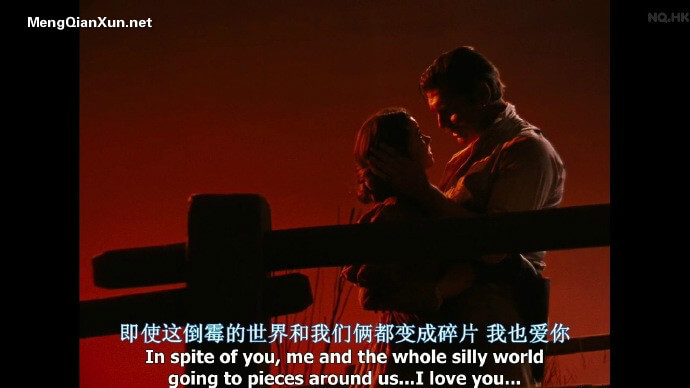桂枝香[1]
金陵怀古
[宋]王安石
登临送目,
正故国晚秋,
天气初肃。
千里澄江似练,
翠峰如簇。
征帆去棹[2]残阳里,
背西风、
酒旗斜矗。
彩舟云淡,
星河鹭起,
画图难足。
念往昔,
繁华竞逐,
叹门外楼头,
悲恨相续。
千古凭高对此,
谩嗟荣辱。
六朝旧事随流水,
但寒烟、
衰草凝绿。
至今商女[3],
时时犹唱,
后庭遗曲[4]。
[1]桂枝香:词牌名,又名“疏帘淡月”,首见于此作。
[2]棹(zhào):划船的一种工具,形似桨,也可引申为船。
[3]商女:酒楼茶坊的歌女。
[4]后庭遗曲:指歌曲《玉树后庭花》,传为陈后主所作,后人将它看成亡国之音。
Tune: Fragrance of Laurel Branch
Memories of the Past at Jinling
Wang Anshi
I climb a height
And strain my sight,
Of autumn late ’tis the best time:
The ancient capital looks sublime!
The limpid river, belt like, flows a thousand miles;
Emerald peaks on peaks tower in grandiose styles.
In the declining sun sails come and go;
In west wind wineshop flags fly high and low.
The painted boat
In clouds afloat,
Like stars in Milky Way white egrets fly.
What a picture before the eye!
In days gone by,
For opulence people did vie.
Alas! Shame came on shame beneath the walls,
In palace halls.
Against the rails, in vain I call
O’er ancient kingdoms’ rise and fall.
The running water saw Six Dynasties pass;
But I see only chilly mist and withered grass.
E’en now the songstresses still sing
The songs composed by captive king.
Wang Anshi (1021—1086) was the premier who carried out reforms under the reign of Shenzong of Song Dynasty (reigned 1067—1085). This poem describes in the first stanza the scenic splendor of Jinling (present-day Nanjing), ancient capital of Six Dynasties (221—280; 317—589). In the second stanza the poet expresses his feeling on thinking of the captive king who was making merry with his dames in the palace hall while the enemy forces came under the walls of his capital.
未经允许不得转载:帕布莉卡 » 王安石《桂枝香 金陵怀古》 -经典诗词英译-中英双语赏析
 帕布莉卡
帕布莉卡


 爱是一颗心遇到另一颗心(出处+配图)
爱是一颗心遇到另一颗心(出处+配图)  《乱世佳人》电影专题
《乱世佳人》电影专题

